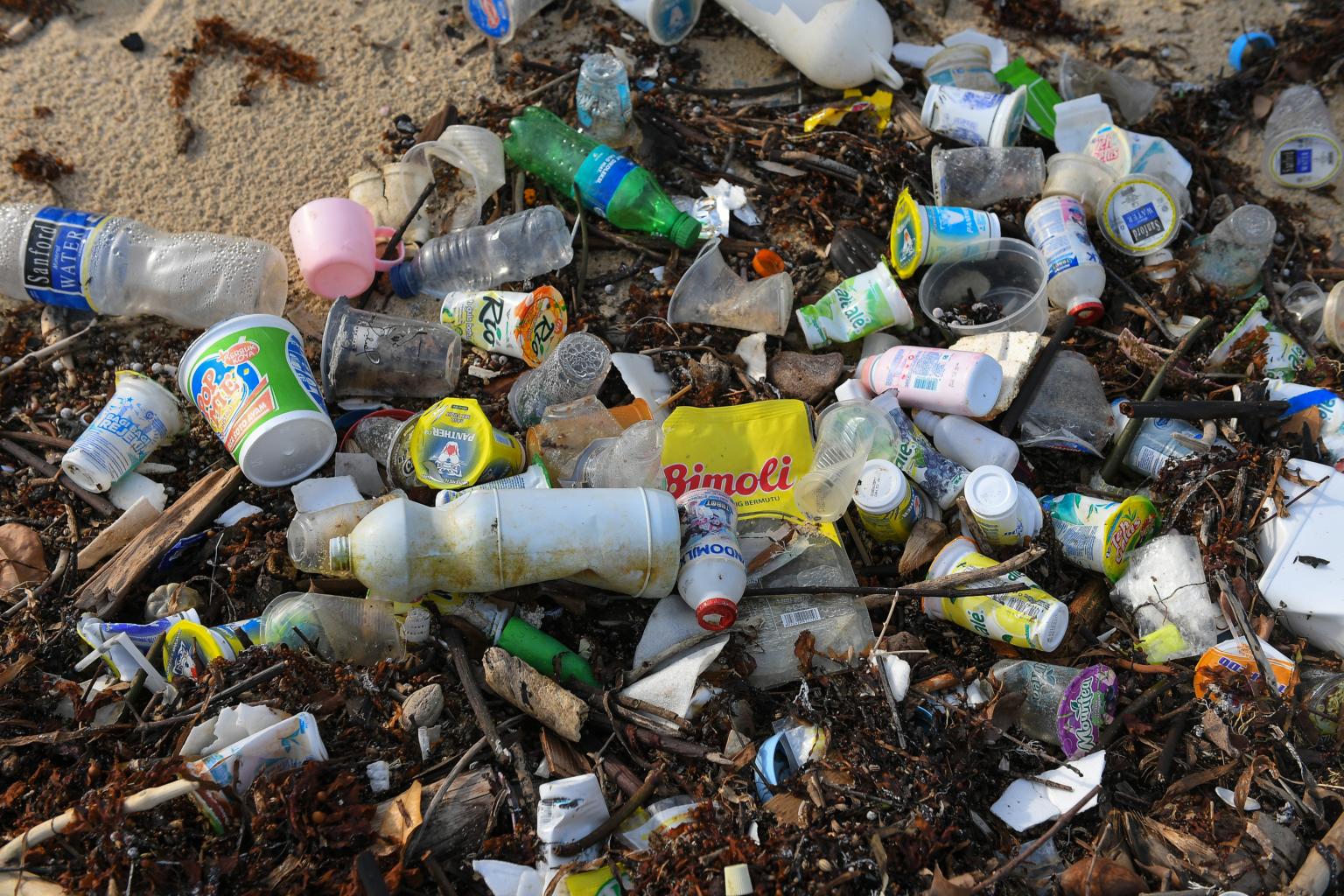Two-year study under way to look into marine litter and microplastics in S'pore waters
Sign up now: Get ST's newsletters delivered to your inbox

In the previous two years, NEA cleared an average of about 3,500 tonnes of marine debris a year from Singapore's beaches.
ST PHOTO: SHINTARO TAY
SINGAPORE - A two-year study is now under way to understand the levels and pathways of marine litter and microplastics in the waters in and around Singapore.
The results from the study, which is conducted by the National Environment Agency (NEA), may be used to support recommendations for future initiatives, said Minister of State for Sustainability and the Environment Desmond Tan in Parliament on Monday (Aug 2).
He was responding to questions from Mr Louis Ng (Nee Soon GRC) abut the marine debris situation in Singapore.
Microplastics are plastic particles measuring 5mm in size or smaller. They are produced when discarded plastics break down over time. They can be eaten by a variety of wildlife due to their tiny size, before moving up the food chain. The health impact of eating microplastics is still unclear.
Mr Ng had raised concerns about the volumes of marine debris flowing to Singapore. He said the upcoming Khatib Bongsu nature park could face the problem of being covered by marine debris, which appears to be "never-ending".
Mr Tan said that in the previous two years, NEA cleared an average of about 3,500 tonnes of marine debris a year from the Republic's beaches.
The Maritime and Port Authority of Singapore (MPA) further collected about 1,000 tonnes of debris from the sea each year.
Mr Tan said: "The bulk of our beach litter actually comes from the marine trash that is brought in by our natural tidal waves... Our monsoon season twice a year doesn't really help."
He told Mr Ng that it is challenging to identify the sources of the trash, as there is no internationally accepted way to conclusively determine their origins.
While debris found in the sea might have labels on them, said Mr Tan, the labels indicate only the manufacturer, not the ship where the debris came from.
He added that the Government has strict regulations in place to minimise marine trash and reduce pollution, on top of cleaning efforts.
"We recognise that despite all these regulations, there are still tonnes of garbage that are swept onto our beaches every day," said Mr Tan.
"We thank the many community groups and individuals for stepping forward to keep (these places) clean, and NEA will continue to do its part."


